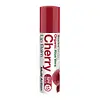What's inside
What's inside
 Key Ingredients
Key Ingredients

No key ingredients
 Benefits
Benefits

 Concerns
Concerns

 Ingredients Side-by-side
Ingredients Side-by-side

Ricinus Communis Seed Oil
MaskingButyrospermum Parkii Butter
Skin ConditioningEuphorbia Cerifera Wax
Ethylhexyl Methoxycinnamate
UV AbsorberCera Alba
EmollientCaprylic/Capric Triglyceride
MaskingSimmondsia Chinensis Seed Oil
EmollientCopernicia Cerifera Wax
Butyl Methoxydibenzoylmethane
UV AbsorberAroma
Argania Spinosa Kernel Oil
EmollientHelianthus Annuus Seed Wax
Skin ConditioningAloe Barbadensis Leaf Extract
EmollientGlycine Soja Oil
EmollientPrunus Cerasus Fruit Extract
AntioxidantHelianthus Annuus Seed Oil
EmollientTocopheryl Acetate
AntioxidantRicinus Communis Seed Oil, Butyrospermum Parkii Butter, Euphorbia Cerifera Wax, Ethylhexyl Methoxycinnamate, Cera Alba, Caprylic/Capric Triglyceride, Simmondsia Chinensis Seed Oil, Copernicia Cerifera Wax, Butyl Methoxydibenzoylmethane, Aroma, Argania Spinosa Kernel Oil, Helianthus Annuus Seed Wax, Aloe Barbadensis Leaf Extract, Glycine Soja Oil, Prunus Cerasus Fruit Extract, Helianthus Annuus Seed Oil, Tocopheryl Acetate
Ricinus Communis Seed Oil
MaskingCaprylic/Capric Triglyceride
MaskingTheobroma Cacao Seed Butter
EmollientEuphorbia Cerifera Wax
Copernicia Cerifera Wax
Oryza Sativa Bran Wax
Skin ConditioningSimmondsia Chinensis Seed Oil
EmollientTristearin
Skin ConditioningHydrogenated Castor Oil
EmollientPersea Gratissima Oil
Skin ConditioningHelianthus Annuus Seed Wax
Skin ConditioningCitrus Aurantium Dulcis Oil
MaskingMentha Viridis Leaf Oil
AstringentLavandula Angustifolia Oil
MaskingPhenoxyethanol
PreservativeRicinus Communis Seed Oil, Caprylic/Capric Triglyceride, Theobroma Cacao Seed Butter, Euphorbia Cerifera Wax, Copernicia Cerifera Wax, Oryza Sativa Bran Wax, Simmondsia Chinensis Seed Oil, Tristearin, Hydrogenated Castor Oil, Persea Gratissima Oil, Helianthus Annuus Seed Wax, Citrus Aurantium Dulcis Oil, Mentha Viridis Leaf Oil, Lavandula Angustifolia Oil, Phenoxyethanol
Ingredients Explained
These ingredients are found in both products.
Ingredients higher up in an ingredient list are typically present in a larger amount.
This ingredient is an emollient, solvent, and texture enhancer. It is considered a skin-softener by helping the skin prevent moisture loss.
It helps thicken a product's formula and makes it easier to spread by dissolving clumping compounds.
Caprylic Triglyceride is made by combining glycerin with coconut oil, forming a clear liquid.
While there is an assumption Caprylic Triglyceride can clog pores due to it being derived from coconut oil, there is no research supporting this.
Learn more about Caprylic/Capric TriglycerideCopernicia Cerifera Wax comes from a palm tree native to Brazil; another name for this ingredient is Carnauba Wax.
This ingredient is used to thicken texture and also leaves behind a film when applied.
Fun fact: This wax has the highest melting point of all natural waxes and low solubility.
Learn more about Copernicia Cerifera WaxHelianthus Annuus Seed Wax is created from the common sunflower.
Sunflower seed wax is made up of long chain non-glyceride esters, a small amount of fatty alcohols, and fatty acids.
This ingredient is often used to enhance the texture of products. The fatty acid properties also help hydrate the skin.
Learn more about Helianthus Annuus Seed WaxRicinus Communis Seed Oil is the INCI name for castor oil.
Castor Oil helps moisturize the skin. It is rich in a fatty acid called ricinoleic acid. This fatty acid helps prevent moisture loss on the skin. This helps keep your skin soft and hydrated. Ricinoleic acid also has anti-inflammatory and pain reducing properties.
Besides hydrating the skin, castor oil is also used to hydrate hair. By keeping the hair shaft moisturized, breakage is decreased. More studies are needed to show castor oil's effective on stimulating hair growth.
Castor oil is created by cold-pressing castor seeds and then purifying the oil with heat. It was used in Ancient Egypt as fuel in lamps and to help treat eye irritation.
The term 'fragrance' is not regulated in many countries. In many cases, it is up to the brand to define this term. For instance, many brands choose to label themselves as "fragrance-free" because they are not using synthetic fragrances. However, their products may still contain ingredients such as essential oils that are considered a fragrance.
Learn more about Ricinus Communis Seed OilThis oil comes from the seeds of the desert shrub called Jojoba. It is more commonly known as jojoba oil, a non-comedogenic oil.
Jojoba oil does not contain fragrance and has many fatty-acids, making it a great soothing ingredient.
It also contains Vitamin E, a great moisturizing ingredient. Vitamin E is also an antioxidant and protects your skin against oxidative damage.
This ingredient humectant properties, meaning it helps draw moisture from the air. This helps keep your skin hydrated.
While jojoba has antibacterial properties, it is only able to kill some strains of bacteria.
Studies also show it helps in wound healing. In fact, Indigenous cultures have used jojoba as a moisturizer and to help treat burns for centuries.
Fun fact: Jojoba oil similar to natural human skin sebum, so it has a great effect on dry skin. It is also promising with helping to regulate sebum production.
Due to its fatty acid content, Jojoba oil may not be fungal acne safe. We recommend speaking with a professional if you have any concerns.
Learn more about Simmondsia Chinensis Seed OilEuphorbia Cerifera wax comes from a shrub in Northern Mexico. It is used to stabilize formulations and has emollient properties.
Emollients form a thin layer on top of skin to prevent water from evaporating, keeping skin and lips hydrated.
According to a manufacturer, this wax can range from a yellow/brown color to translucent.
Learn more about Euphorbia Cerifera Wax